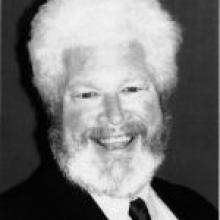
And each year it outdoes itself, says weather ambassador Bob McDavitt.
Last week, the weather forecast service came in for a blasting from Far North Mayor Wayne Brown, who blamed it and television news for thousands of holiday cancellations in Northland over Labour Weekend.
Mr Brown was scathing of television reports of a "Noah-like storm", which he said were based on MetService information.
He demanded an apology from the service, which he argued was ultimately responsible for the negative predictions.
However, MetService denied any wrongdoing, saying its weather warning had played down the significance of any wild weekend weather.
Mr McDavitt said on Friday that Metservice records showed it was well exceeding its targets for detecting 75% of heavy rain, snow or wind events.
"And we had an interesting year because there were more events than normal."
Mr McDavitt said the service was also beating other targets, including that no more than 40% of its warnings turned out to be false alarms.
"We are doing OK, but we want to do better."
Mr McDavitt said the MetService was therefore changing its targets with an aim to achieve in the next four years a minimum 95% prediction of severe rain warnings; in other words, not more than 5% missed events.
The service was also aiming for no more than 20% false alarms of heavy rain events.
"You've got to balance the missed events with false alarms.
"We could warn of events every day and not miss any but we would end up crying wolf and that is not much use."
For wind and snow, the new goals were a minimum 85% predictions, or maximum 15% missed events, and no more than 30% false alarms.
Mr McDavitt said the MetService was, in its next budget, devoting 10% of its revenue to research and development to improve forecasts.
That required investing in modelling case studies so forecasters could better understand weather systems and how models handled them, and more radar, weather stations and other forecasting tools.
New radars costing more than $1 million would be installed in the Bay of Plenty, Hawkes Bay, Northland, Westland and Otago by 2012.
Weather Watch head weather analyst Philip Duncan said he generally found the MetService to be accurate.
The service had improved in recent years and Mr Duncan did not see any failure in its Labour Weekend forecasts.
Northland could be particularly problematic because it was a very narrow piece of land and the systems coming down from the subtropics could miss targets.
"It is just a peninsula sticking out of the North Island."
Mr Duncan said there had been some heavy localised downpours in Northland over Labour Weekend but a lot of the rain had fallen out to sea.
A problem with people relying on television weather forecasts was they were "one shot", and once a weather warning had gone out it was difficult to retract, he said.
Mr Duncan thought New Zealand's television weather presenters could give more opinions about the forecasts to put them in perspective.
• MetService record
In the 12 months to June. -
Events detected
Heavy rain 95%
Severe snow 87%
Severe gales 94%
False alarms
Heavy rain 27%
Heavy snow 29%
Severe gales 20%
